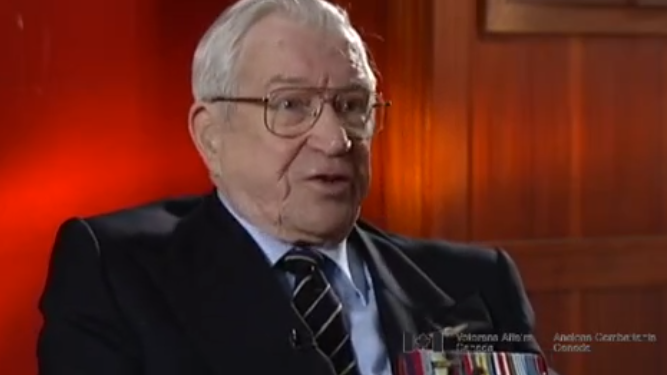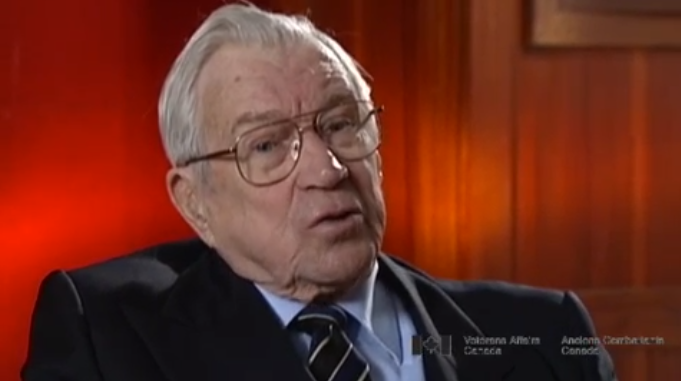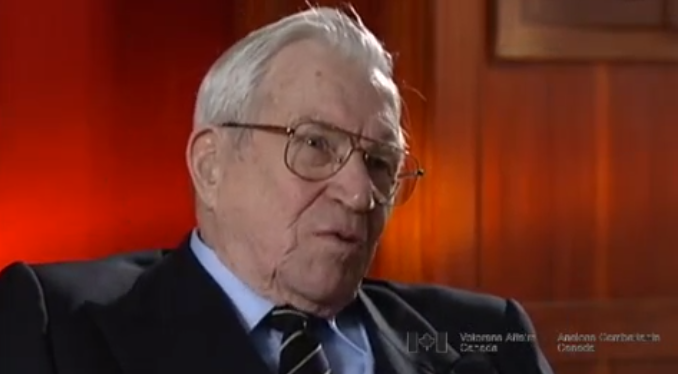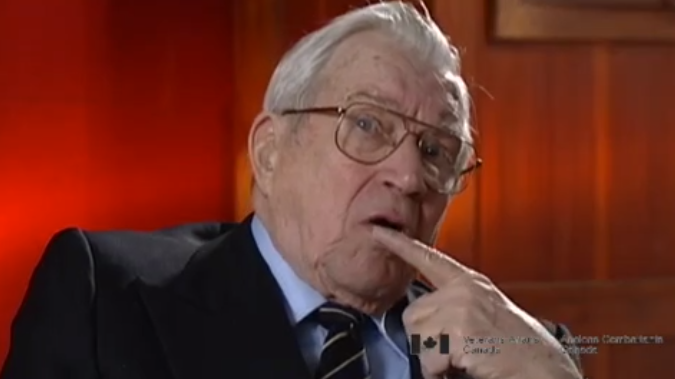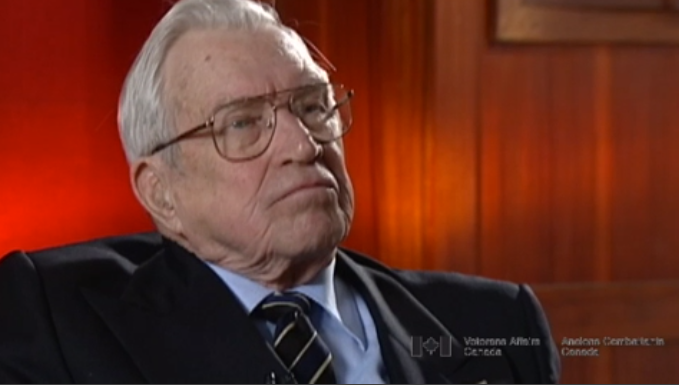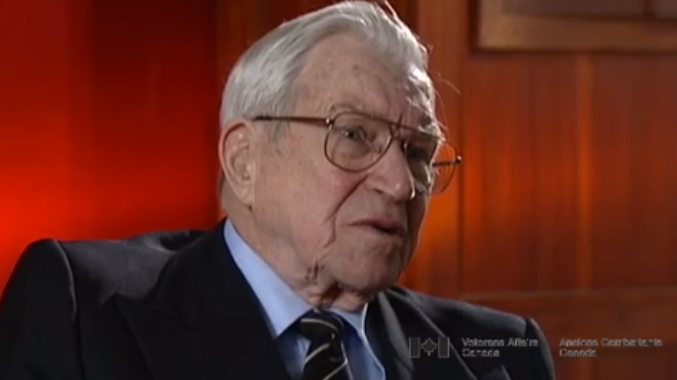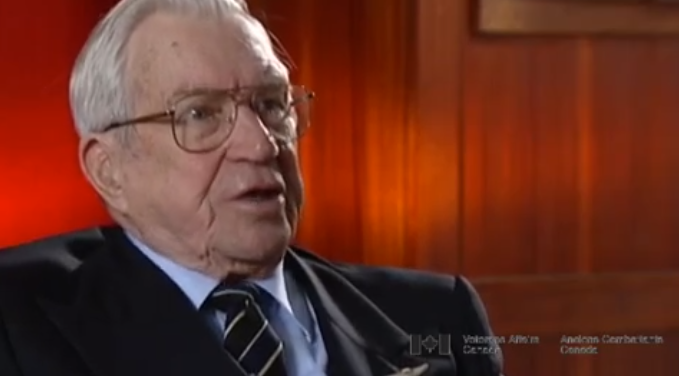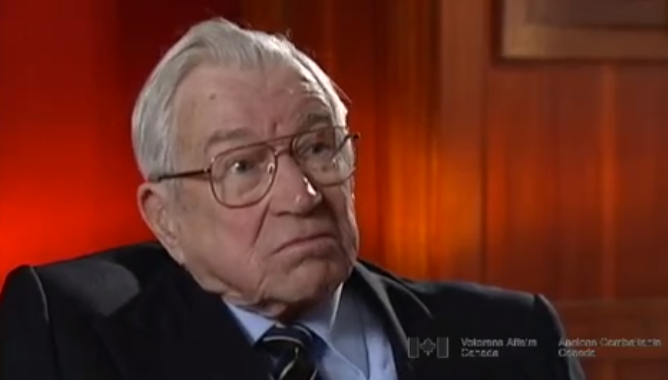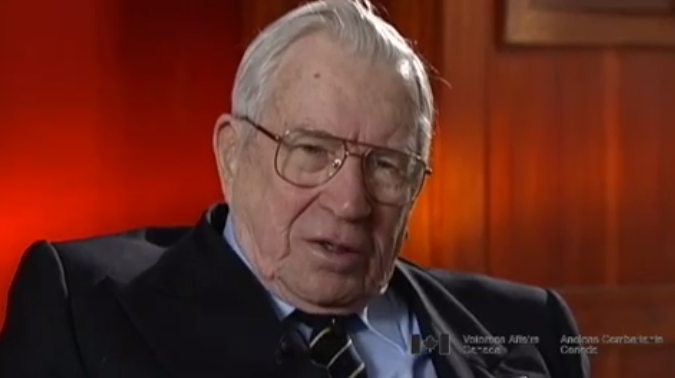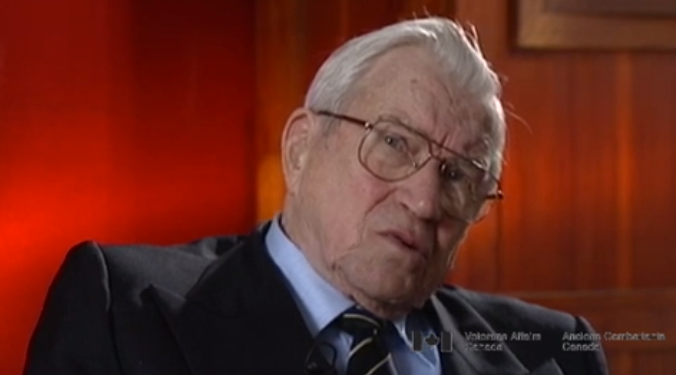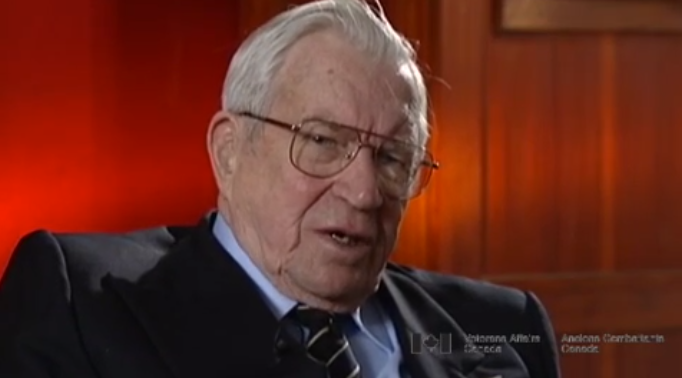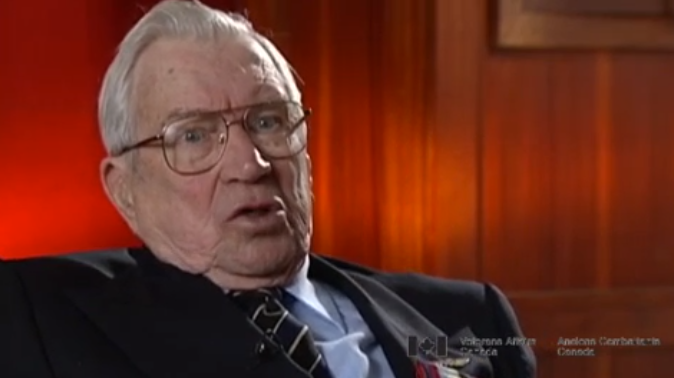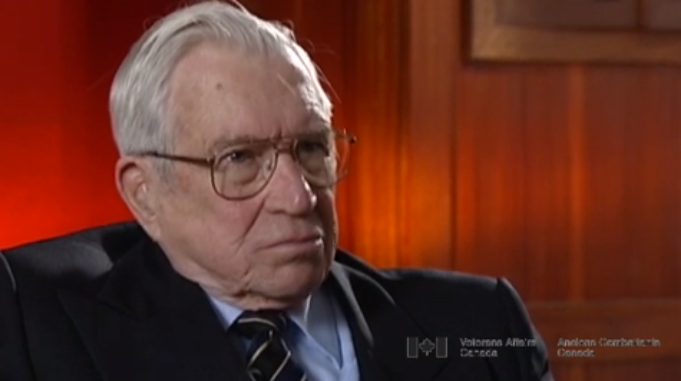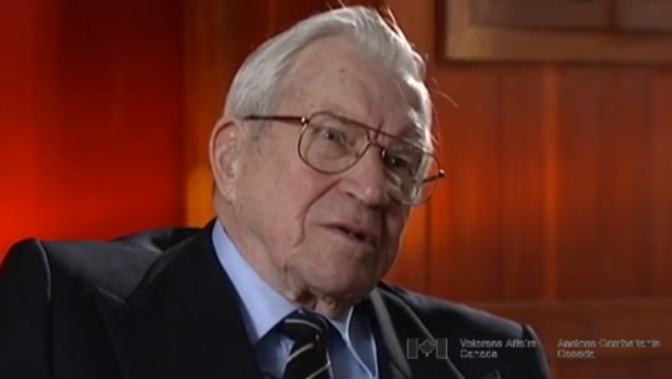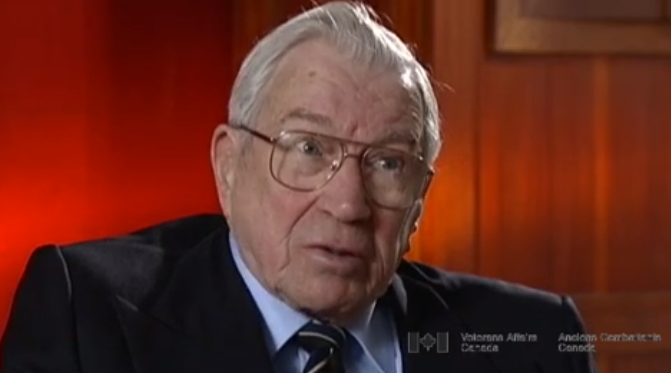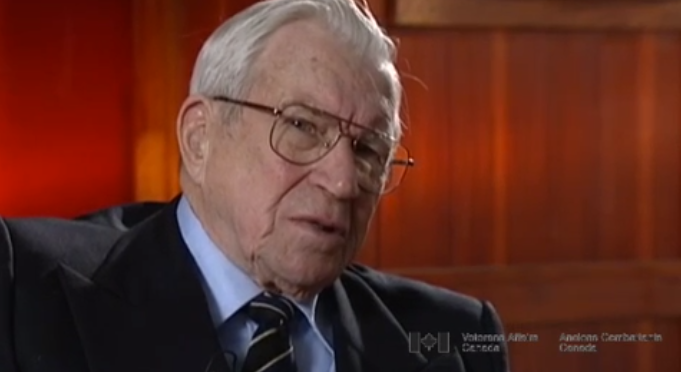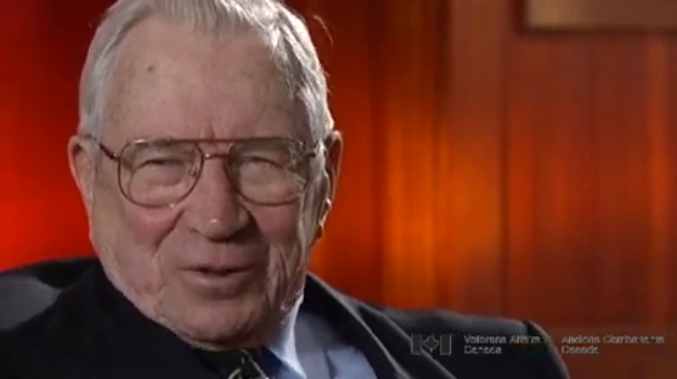The North Atlantic could be very rough.
Heroes Remember
The North Atlantic could be very rough.
Transcript
Description
Mr. Bowen describes in very clear terms the violence wreaked by a North Atlantic storm, and the impact such storms had on a convoy.
Gerald Bowen
Gerald R. Bowen was born in Ottawa, Ontario on October 13, 1925. He attended Lisgard High School, and was a paperboy. His family had prior military experience. His uncle had served in the Air Force and his father in the Army, later becoming an historian with the Department of National Defence. Mr. Bowen enlisted in the Navy where he became a telegrapher, serving aboard a Royal Canadian Navy frigate on convoy duty in the North Atlantic until the war ended. He left the service for a brief time and re-enlisted in the Canadian Army, where he became a paratrooper and a specialist in sabotage. He later served as a peacekeeper in Cyprus. Mr. Bowen’s extensive experience in the Canadian military offers us some very informative and perceptive anecdotes.
Meta Data
- Medium:
- Video
- Owner:
- Veterans Affairs Canada
- Duration:
- 2:55
- Person Interviewed:
- Gerald Bowen
- War, Conflict or Mission:
- Second World War
- Location/Theatre:
- North Atlantic Ocean
- Battle/Campaign:
- Battle of the Atlantic
- Branch:
- Navy
- Rank:
- Ordinary Seaman
- Occupation:
- Wireless Operator
Related Videos
- Date modified:



